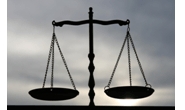Government/Policy

September 13, 2020
Leibowitz: SIMA Requires Importers to Reveal Where Steel was “Melted and Poured”
Written by Lewis Leibowitz
Trade attorney and Steel Market Update contributor Lewis Leibowitz offers the following update on events in Washington:
New regulations published Sept. 11 in the Federal Register require steel importers to know and reveal the country where steel was “melted and poured” no matter how much the steel was processed thereafter.
Steel importers have long been familiar with the Steel Import Monitoring and Analysis (“SIMA”) regulations, which were first adopted in 2002 during the steel safeguard measures adopted by the Bush 43 administration. SIMA in turn was a refinement to the “Special Summary Steel Invoice” (“SSSI”) requirement in the 1970s.
SIMA requires application for an import license to import steel into the United States. The licenses provide advance notice of the arrival of steel imports. However, licenses do not always result in imports.
Last year, the U.S. agreed with Canada and Mexico to monitor imports of steel that had been transshipped through Canada or Mexico. Based on this agreement, the Commerce Department proposed a new requirement under SIMA to indicate on each import license application the country where steel was “melted and poured.” The new regulations define “melted and poured” as the country where the steel was first produced in a liquid state and then “poured into its first solid state.”
The requirement is not restricted to imports from Canada and Mexico. All SIMA import licenses require listing the country where the steel was first melted and poured. Commerce found that mill test certificates available to importers and U.S. purchasers of steel are maintained in the ordinary course of business and routinely contain information on where steel was melted and poured. Mill test certificates are required by U.S. Customs and Border Protection as part of entry documentation. Therefore, the mill certificate with melted and poured information should be “readily available to the importer.” Therefore, an importer cannot claim to obtain a license unless the mill certificate indicating the country of melt and pour is available to that importer. No matter how many times the steel has been processed before U.S. importation, the melted and poured information must be submitted with the import license application. As before, the license is automatically issued under these rules, provided that the required information is on the application.
The new requirements become effective on Oct. 13, 2020. For further information on the new requirements, consult the final rule notice published in 85 Fed. Reg. 56162 (Sept. 11, 2020).
These license requirements will likely affect a number of steel import measures. First, the requirement is clearly an outgrowth of anti-circumvention proceedings involving Vietnamese cold-rolled and coated steel allegedly made from Chinese substrate. The circumvention proceeding did not identify major quantities of Chinese substrate—but Commerce continues to search for transshipments or other “circumventions” of antidumping and countervailing duty measures.
The Section 232 steel import measures are based on a standard “substantial transformation” analysis. Therefore, transshipments do not violate the Section 232 measures, but they may result in additional measures that could further restrict steel imports in the future. For that to happen, the administration (or its successor) would need to win some pending court cases that challenge the Section 232 measures in several respects.
Do not expect that the “melted and poured” requirement of steel import licenses is the last time the Commerce Department acts to make it harder to import steel.
The Law Office of Lewis E. Leibowitz
1400 16th Street, N.W.
Suite 350
Washington, D.C. 20036
Phone: (202) 776-1142
Fax: (202) 861-2924
Cell: (202) 250-1551







